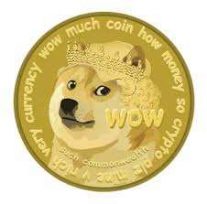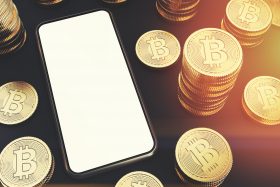China ICO Ban: A Pause in the CryptoCraze

Chinese regulators sent shockwaves through the cryptocurrency market this week, announcing they would ban all initial coin offerings (ICOs) of cryptocurrencies. The regulators also ordered exchanges to stop trading in the tokens, said they would investigate fraud, and said that funds raised should be returned to investors.
Cryptocurrency leaders Bitcoin and Ethereum -- which hold more than 60 percent market share between them -- fell about 20 percent since Friday on this news. But does it really affect them? Their cryptocurrencies have already been established and while they are often used in ICOs, Bitcoin and Ethereum aren't raising money in ICOs themselves. The China ICO ban is about new issuances of crypto-token-coin-thingiemebobs.
For those of you who don't know what an ICO is -- it's like this. You make up a new "coin," which of course is based on the blockchain, a digital ledger controlled by encryption. You announce it. Then you accept millions of dollars in investment in exchange for the new coin. It's fun for everybody -- creating money out of thin air with no regulation whatsoever.
The result? You have companies listed as pink-sheet stocks issuing things like a WEED.
You should not be surprised that this is coming under scrutiny. The idea is crazy to begin with -- just crazy enough to be brilliant. But with the cryptocurrency craze taking on a life of its own, expect regulators to be behind the curve. It takes them a while to even understand what's going on.
What the major news media got wrong is what this means. It was widely reported this was the cause of 15-20 percent downdrafts in market-leading crypto-currencies such as Bitcoin and Ethereum. But shouldn't it be the inverse? If much of the shoddy cut-rate competition can be swiftly eliminated by decree, shouldn't that make established cryptocurrencies stronger?
The news led to cancellations of plans for new ICOs and halted the instant creation of wealth. Scry.info announced that it has suspending its planned token sale, which would have raised about $50 million.
How have ICOs done this year? Incredibly well. They've raised billions of dollars. For example, as reported on the site the Merkle, three of the top ICOs have raised hundreds of millions -- Tezos raised $200 million, EOS raised $200 million, and BANCOR raised $150 million. That's more than a half a billion right there!
But the legal and investor ramifications of cryptocoins, tokens, monopoly money -- whatever you want to call them -- are murky. As John Koetsier recently pointed out in an Inc. article on the trend, investors have no rights in an ICO, unlike shareholders in a company. They are just purchasing access to the coin, or token, as a means of exchange for something else.
Or, as Coin Telegraph points out about the EOS ICO, you have no rights:
“As mentioned above, the EOS Tokens do not have any rights, uses, purpose, attributes, functionalities or features, expressed or implied. Although EOS Tokens may be tradable, they are not an investment, currency, security, commodity, a swap on a currency, security, or commodity or any kind of financial instrument.”
So what to do? Well, if you are a government, you crack down. It's a bold money grab, obviously, that could be rife with fraud. Kind of like the stock market.
What does it mean for Bitcoin or Etherneum, the two market-leading cryptocurrencies? In the long run, this may end up being good news for these cryptocurrencies as it reduces fraud as these leaders become more mainstream.
Of course, the crypto market is nervous because any sort of regulation could have long-term impact on the market -- and it expects that if China acts, other states could follow, including introducing wider range regulations for the crypto market at large. But the cryptocurrencies can always seek new loopholes and safe havens, such as operating offshore.
A full-on regulatory assault is probably years away, especially in the United States. Your average Senator has a lot of other things on his or her mind -- such as stopping nuclear war with North Korea or passing a new debt ceiling.
[Dislosure: The writer of this article holds small positions in cryptocurrencies, just in case they completely take over the world.]




